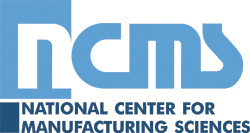 |
 |
Regulatory Updates
Compiled from NASFs Government Relations News, IPCs EHS Update, and other sources. Another source of Regulatory Updates can be found at the Small Business Environmental Home Page.
Union Membership Drops Again in 2006
January 30, 2007
American workers continue to move away from unionized workplaces, according to data just released by the federal Bureau of Labor Statistics. While total employment in the United States rose by more than 2.3 million jobs in 2006, union membership dropped by over 326,000 members to under 15.4 million. Private sector union membership dropped to 7.4% of the workforce.
Union officials are seeking to reverse the trend and continue to focus on unionizing the public sector while pressing Congress to pass legislation taking away the right of secret ballot unionization elections and replacing such elections with relatively more coercive "card check" systems.
For most of the 20th century union officials could argue they represented mainly private sector workers, but today the situation has reversed as there will soon be more union members working for the government than private employers.NASF Government Relations
European Execs Polled on the Environment, Asia Trade Issues
January 26, 2007
A new poll just out asked nearly 1500 senior executives from large European companies what issues divide Europeans and Americans most. Respondents said out of all issues, the U.S. and Europe are most divided on the environment. In fact, European business leaders say political leaders should make environmental protection a top priority, ahead of both economic growth and energy security.Forty-five per cent said environmental protection should be governments’ top concern, followed by 40 per cent support for economic growth and 33 per cent support for energy security. Respondents came from Belgium, France, Germany, Italy, the Netherlands, Spain and the UK. These attitudes are aligned with European Union efforts in recent years to widen the scope of its global influence on the environmental and health regulatory front.
On whether China poses a threat or an opportunity to their country’s business, 56% of European respondents said China was an opportunity, with 26% considering it a threat. After China, 52% put India as the next great opportunity for business while 12% listed Japan. At the same time, a majority felt that the most opportunity existed closer to home. For more information on the survey, go to the UPS Europe Business Monitor at http://www.ebm.ups.com/europe/ebm/index.html .
NASF Government Relations
Congress and Small Business Breaks vs. Minimum Wage Hike
January 17, 2007
The Senate Finance Committee on Wednesday, January 17, is scheduled to mark up draft legislation that would grant tax breaks to certain small businesses. Part of the Senate panel’s effort is to provide “sweeteners” to small business to help offset the potentially burdensome minimum-wage hike that’s now moving quickly through Congress.Some of the ideas floating around Capitol Hill to help include extending so-called Section 179 expensing for small business, or a provision that allows small businesses to deduct up to $100,000 of investments in depreciable assets through 2010, (2) allow more small operations to qualify for tax preferences as “S” corporations; and (3) permit small companies to form groups to get a better deal on health insurance through “association health plans (AHP)”. AHP legislation has gotten close but failed to become law in the last several years. Key Democrats in the majority are opposed to passing a health plan measure, but some Senate Republicans say there may be hope for a deal in the 110th Congress.
NASF Government Relations
U.S-China Commission Plans Work on Manufacturing, Trade and Security Issues for 2007
January 15, 2007
The U.S.-China Economic and Security Review Commission announced its new Chairman this week, as well as its plans to hold a wide range of hearings in 2007 and advise Congress on “serious questions in the U.S.-China relationship.” The Commission, a bipartisan entity created by Congress a few years back to analyze issues and make recommendations on US policy toward China, this year will examine such issues as China’s compliance with its obligations under the World Trade Organization (WTO), the impact of trade with China on U.S. manufacturing and the defense industrial base, and U.S. security implications of China’s military modernization and emerging force deployments.The Commission elected as its new Chairman a current commissioner, Carolyn Bartholomew, who is an expert on U.S.-China relations and former senior policy advisor and chief of staff for House Speaker Nancy Pelosi. Last May, Commissioner Patrick Mulloy discussed US-China issues with finishers during the industry’s Washington Forum. In his exchange with attendees, he underscored the Commission’s concerns about the impact of Chinas runaway growth – as well as its currency, IP policies and its trade surplus – on U.S. manufacturing competitiveness.
The schedule for this year’s US-China public hearings will be posted before the end of January. As mandated, the Commission annually holds hearings with testimony from various experts, and develops four annual reports for Congress. For last year’s reports and updates about this year’s activity on U.S. economic and manufacturing issues, go to www.ussc.gov.
NASF Government Relations
Climate Change Tops List of Priorities for House Energy & Commerce Committee Chairman Dingell – Al Gore Likely to Testify
January 15, 2007
Senior House leader and influential committee chairman John Dingell (D-MI) yesterday signaled he would invite former Vice-President Al Gore to testify before his panel in the coming weeks on global warming and climate change. Dingell signaled to House members yesterday that he’ll put climate change as his top priority among the issues on which he intends to hold hearings and advance legislation during this session in Congress.Historically a defender of the automotive industry yet a staunch proponent of tougher environmental standards and aggressive overseer of USEPA, Dingell has represented parts of suburban Detroit since 1955. His 15th District now includes Dearborn, Romulus, Ypsilanti and Ann Arbor. Michigan NASF members from the 15th district will visit the Chairman and discuss finishing industry issues – including small manufacturing challenges in the automotive supply chain and the pending EPA Plating & Polishing air emissions rulemaking – at this year’s NASF Washington Forum. Please click here for more information on this important industry event to be held once again at the L’Enfant Plaza Hotel, May 1-3, 2007. See you there!
NASF Government Relations
New Congress to Focus on “Environmental Justice” Issues
January 14, 2007
Key environmental leaders in the new Congress have signaled they will re-energize the debate on whether citizens in poor communities need new legal and policy tools to combat potentially more dangerous health threats from industry, contaminated property, substandard housing and traffic pollution. In addition to promises of tougher oversight and charges that the US Environmental Protection Agency has weakened environmental justice programs, key members of the new majority are working to advance legislation early for consideration in 2007.Congresswoman Hilda Solis (D-CA) introduced a bill last week (H.R. 398), the “Healthy Places Act”, which would charge the Center for Disease Control (CDC) with new responsibilities to assess the environmental health impacts of citizens in disadvantaged communities. Solis, a three-term representative who represents parts of East Los Angeles and the San Gabriel Valley, led the passage of landmark environmental justice legislation as a California State Senator in the 1990s. Illinois Democratic Senator Barack Obama is slated to introduce a companion bill in the Senate in the coming weeks. The house bill was referred to the Energy and Commerce Committee, where Solis holds a senior position on that panel’s Health Subcommittee.
NASF Government Relations
The New Congress: Washington Gets Down to Business
January 4, 2007
The holiday lull and somber atmosphere of former President Ford’s funeral quickly gave way to an explosion of activity in Washington as lawmakers kicked off the 110th Congress in early January. The first day of the legislative year began with newly elected and veteran members alike being officially sworn in and early remarks clarifying the near term priorities of the new leadership on Capitol Hill. Democrats, who now effectively control the House 232-202 and the Senate 51-49, were eager to get things underway quickly on the legislative agenda.Newly-elected House Speaker Nancy Pelosi (D-CA) rolled out some key items on the Democrats’ highly touted first “100-hour” agenda. Among the issues to be taken up immediately are strict new lobbying, travel and ethics rules in the wake of congressional corruption scandals last year, more light on the famous and unrelenting practice of “earmarking” dollars to members’ home districts, and bringing back the “pay-go” budget rule that requires Congress to offset tax cuts or new spending with cuts somewhere else.
Democratic leadership in the House and the Senate could likely take some different paths on lobbying and ethics rules, but the end result could spell significant change in some areas. There’s already been a little wrangling over some of the reform proposals. One that would mandate annual ethics training for all congressional employees has some balking about whether the rule implies there are too many bad apples employed on Capitol Hill.
And the action doesn’t stop here. Before long – meaning in the coming weeks – Congress will likely take up other items on the Democratic agenda. Some of the most prominent include the controversial step for some of raising the federal minimum wage by an additional $2.00 or more, to $7.25 (which President Bush is moving to embrace), and formally adopting into law a short list of untouched recommendations by the bipartisan September 11 commission.
And following these? More action in line with Democrats’ focus on helping middle Americans and curbing the perceived undue influence and profits of big business. Here we’ll likely see action soon to lower interest rates on student loans, changes to Medicare that would allow the government to negotiate lower prescription drug prices with the drug companies, and yanking subsidies for oil companies in order to fund alternative energy sources.
Congress is getting down to business. There is, not surprisingly, a good deal of talk about bipartisanship, solving the nation’s problems and collectively tackling the many obvious challenges ahead. To some, like come-back Connecticut Senator Joe Lieberman, there are real opportunities to make the Senate and the House more effective venues for accomplishing the people’s business. This was reflected already in one of the first early “off the record” sessions held the first week of January between Senate Democrats and Republicans. There, they discussed issues of the day and talked about how to work together better on a number of fronts.
The usual conflicts and difficulty will no doubt enter in very soon. But for the opening day of the 110th Congress, it was a good start.
NASF Government Relations
EPA Withdraws Draft f006 Sludge Proposal
June, 19, 2006
The Environmental Protection Agency (EPA) recently withdrew its plan to propose a rule exempting electroplating sludge (F006) from Resource Conservation Recovery Act (RCRA) hazardous waste regulations when it is recycled. EPAs decision to withdraw the rule prior to proposal came as a surprise after years of EPA promises to promote F006 recycling through regulatory reform. EPA had submitted the draft rule to the Office of Management and Budget for a review, but the Agency abruptly withdrew the draft rule during the review process. EPA has said that they plan to address F006 under the forthcoming definition of solid waste (DSW) rule.The EPAs draft F006 rule was expected to increase the recycling of electroplating sludge by providing an exemption from regulation as a RCRA listed hazardous waste. In order to provide regulatory relief to F006 generating facilities, EPA had drafted an exemption from RCRA hazardous waste provisions for sludge that is recycled, provided that it meets minimum concentrations of 18 percent for copper or 12 percent for nickel.
IPC and its members were extremely disappointed by EPAs decision to withdraw the draft rule. For many years, IPC and its members have pressured EPA to consider a rule addressing F006. It is not clear whether the EPA will issue a broader DSW rule that adequately addresses F006 recycling. EPA has promised to either release a final DSW rule or re-propose by the end this year.
IPC wrote a letter to EPA Assistant Administrator expressing its disappointment with agencys decision to withdraw F006 rule. Please click here to see the full text of the letter.
IPC VICTORY! EPA Takes Step to Reduce TRI Reporting BurdenJanuary 4, 2007
After years of advocating for reform of the U.S. Environmental Protection Agency (EPA) Toxics Release Inventory (TRI) rule, IPC –— Association Connecting Electronics Industries® is pleased to announce its efforts have paid off. EPA has finalized a TRI ruling that reduces the burden of reporting for small businesses and companies that use small amounts of the TRI chemicals, especially those that focus on limiting emissions through recycling. (full text)


